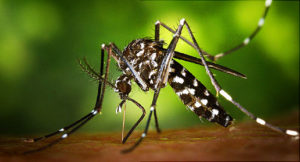Zika Virus Task Force
Zika Task Force
 Chair: Scott Weaver, MS, PhD
Chair: Scott Weaver, MS, PhD
Galveston National Laboratory
University of Texas Medical Branch, Galveston, TX, USA
Terms of Reference (TOR) – Global Virus Network Zika Task Force
- The Zika Task Force is composed of members of any of the GVN Centers of Excellence, its affiliates and top global experts who have relevant research and development expertise that could be harnessed to respond to the current Zika epidemic.
- One member will serve as Chairperson. Membership in the Task Force is voluntary.
- The Zika task force is the main responsible for advising the GVN, including its Centers of Excellence, in all aspects related to the GVN response to the Zika epidemic.
- With support from the GVN secretariat, the Task Force will c
 ommunicate with all CoE to identify opportunities for collaboration.
ommunicate with all CoE to identify opportunities for collaboration. - With support from the Secretariat, the Task Force will establish strategic alliances with other relevant organizations involved in the response to the Zika epidemic.
- The Task Force will convene conference calls and, if appropriate, meetings to discuss practical GVN actions in response to the epidemic.
- With support from the GVN Secretariat, the The Task Force will serve as GVN spokespersons, and will communicate with the media as such.
- As possible and appropriate, members of the Task Force should be available to advise, on behalf of the GVN, countries on activities related to the response to the epidemic.
- While serving in the GVN Task Force, members are encouraged to act on behalf of the GVN in addition to their own professional affiliation.
- Membership of the Task Force is for one year, extendable if appropriate.
GVN Zika Serum Bank
The Global Virus Network is an independent, non-profit organization that was founded in 2011 in Washington, D.C. Today, the GVN is comprised of 38 Centers and 6 Affiliates in 24 nations. The GVN vision is: “A world prepared to prevent, contain and control viral epidemic threats, through the collaboration of a global network of expert virus laboratories.” That vision is approached by: (1) Establishing a global network of expert virology laboratories; (2) Promoting the development of new tools, including diagnostics, antiviral drugs and vaccines; (3) Training the next generation of virologists; and, (4) Advocating for a more comprehensive and inclusive response to viral threats worldwide.
To assist with the development of diagnostics and vaccines and to better understand the humoral immune response to Zika virus infection, the GVN, thanks to a generous gift from Allergan, has established a patient serum bank. The donated sera or plasma, provided without patient identification, will be distributed to interested scientists through the World Reference Center for Emerging Viruses and Arboviruses (WRCEVA) at UTMB. The GVN Zika Serum Bank has both acute, PCR-positive and convalescent, antibody-positive sera.
If you wish to request samples, please fill in the request form. Requests will be reviewed to determine the best use of these limited Zika-positive human serum/plasma samples.
Resources
- GVN Zika Task Force Chair Scott Weaver, PhD at GVN Center of Excellence University of Texas Medical Branch’s Institute for Human Infections and Immunity and Galveston National Laboratory
- GVN Center of Excellence, J. Craig Venter Institute (JCVI), Virus Pathogen Resource (ViPR)
- U.S. Centers for Disease Control and Prevention (CDC) on Zika Virus
- U.S. National Institute of Allergy and Infectious Diseases (NIAID) on Zika Virus
- WHO ZIKA Fact Sheet
- World Community Grid
- Zika Preparedness and Response: A Public Health and Legal Perspective, America Public Health Association
- USAID Announces $30 Million Grand Challenge To Combat Zika And Future Disease Threats
Media on GVN Zika Task Force
- STAT, Febuary 22,2016:Raised on science and family legend, he saw the Zika crisis coming
- The Baltimore Sun: Editorial, February 18, 2018: Another nightmare Germ
- The Baltimore Sun, February 16, 2016: “Baltimore consortium forms global task force to study Zika, find vaccine”
- WJZ, CBS Baltimore, February 16, 2016: “Md. Scientist Creates Task Force To Find Vaccine For Zika Virus”
Task Force Members
- Sazaly Bin Abu Bakar, PhD, Msc, Bsc
University of Malaya, Kuala Lumpur, Malaysia - Michael Diamond, MD, PhD
Washington University School of Medicine, St. Louis, MO, USA - Jose Esparza
Institute of Human Virology, Baltimore, USA - Susan J. Fisher, PhD
UCSF School of Medicine - Robert Gallo
Institute of Human Virology, Baltimore, USA - Antoine Gessain, MD, PhD
Institut Pasteur, Paris, France - Xavier Abad Morejón de Girón, PhD
Centre de Recerca en Sanitat Animal, Catalonia, Spain - Diane Griffin, MD, PhD
Johns Hopkins Bloomberg School of Public Health, Baltimore, MD, USA - Andrew Haddow, PhD
United States Army Medical Research Institute of Infectious Disease, MD, USA - Giuseppe Ippolito, MD
National Institute for Infectious Diseases Lazzaro Spallanzani, Rome, Italy - Esper Kallas, MD, PhD
University of Sao Paulo, Brazil - Alexander Khromykh, PhD
University of Queensland, Australia - Albert Ko, MD
Yale School of Public Health, New Haven, CT, USA - Alain Kohl, PhD
MRC-University of Glasgow Centre for Virus Research, Glasgow, Scotland - Marc Lecuit, MD, PhD
Institut Pasteur, Paris, France - Eric Leroy, PhD
Institut de Recherche pour le Développement, Montpellier, France - Julius Lutwama, PhD
Makerere University, Uganda Virus Research Institute, Entebbe, Uganda - John Mackenzie, AO, PhD, FTSE, FASM, FACTM
Curtin University, Perth, Australia - Núria Busquets Martí, PhD
Centre de Recerca en Sanitat Animal, Catalonia, Spain
- Gene D. Morse, PharmD
University at Buffalo HIV and HCV Clinical Pharmacology Laboratory - Kenneth Olson
College of Veterinary Medicine and Biomedical Sciences, Colorado State University - Jorge Osorio, PhD
University of Wisconsin, Madison, WI, USA
University of Antioquia Medical School and Fundacion Antioqueña de Infectologia, Medellin, Colombia - Janusz T. Paweska, PhD
NHLS Johannesburg National Institute for Communicable Diseases - Giovanni Rezza, MD
Istituto Superiore di Sanità, Rome, Italy - Amadou Sall, PhD
Institut Pasteur de Dakar, Dakar, Senegal - Raymond Schinazi, PhD, Hon DSc
Emory School of Medicine, Atlanta, GA, USA - Cameron Simmons, PhD
The Peter Doherty Institute for Infection and Immunity, Melbourne,Australia - Ed Tramont, MD
National Institute of Allergy and Infectious Diseases - Maria Van Kerkhove, PhD
Institut Pasteur - Nikos Vasilakis, PhD
University of Texas Medical Branch, Galveston, Texas, USA - David Watkins, PhD
University of Miami, Miami, FL, USA - Stephen Whitehead, PhD
National Institute of Allergy and Infectious Diseases
